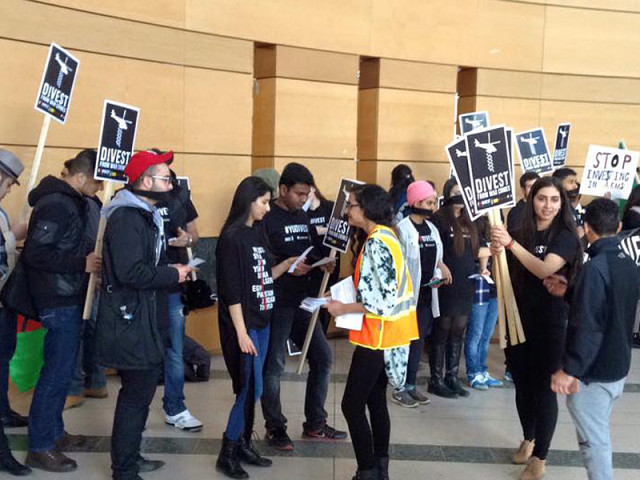As another school year draws near, Gil Troy has some advice for university students: be ready to defend Israel. In a recent column, the McGill University professor suggests several ways to combat what he calls “the anti-Israel obsession on campus.”
“First,” he writes, “don’t let the haters win by making the conversation about Israel solely about boycotts, delegitimization and anti-Zionism.” Instead, Troy argues, campus advocates should focus on three specific ways to defend Israel:
• The democracy argument: “that as one of the few countries in the world with free elections, a free press and free thought, [Israel] has built-in mechanisms for self-improvement.”
• The peace-making argument: that Israel is “a country surrounded by enemies, one that has repeatedly made risks for peace and responds better to encouragement than delegitimization.”
• The proportionality argument: “that Israel’s flaws are exaggerated, Palestinian responsibility is overlooked – in a condescending and bigoted way – and singling out the only Jewish state for the kind of obsessive condemnation not only feeds anti-Semitism, but is itself anti-Semitic.”
This is solid advice for Israel’s campus advocates across Canada and around the world. And it is especially timely counsel now, given the recent comments of two prominent Jewish historians in an Ha’aretz article entitled, “We’re American Jewish historians. This is why we’ve left Zionism behind.”
In their essay, Hasia Diner, professor of American Jewish history at New York University, and Marjorie N. Feld, professor of history at Babson College, describe the turning point in their perspectives on Israel. For Diner, it was being asked to sign a statement of principles affirming her belief in “the centrality of the State of Israel and Jerusalem as [its] capital.” “The singular insistence on Israel as a Jewish and Zionist state,” she explains, “made me realize that, at least in light of this document, I could not call myself a Zionist, any longer.”
Feld’s “ah-ha” moment came at a conference, where “a feminist scholar… asked me directly if I considered myself a Zionist, and I gave an indirect answer. Her anger became palpable. She nearly shouted: ‘You’ve read Chomsky, haven’t you?’”
Diner goes on to argue that “the death of vast numbers of Jewish communities as a result of Zionist activity has impoverished the Jewish People, robbing us of these many cultures that have fallen into the maw of Israeli homogenization” – as if the Jewish state and not anti-Semitic leaders in the Middle East and beyond were the reason many Jews were forced to flee their ancestral homes for Israel. Feld, meanwhile, explains how “from non-Jews I met in liberal and left organizations in college, I first heard strong critiques of Zionism as western colonialism, as a militarist project, as racism.”
Together, Diner and Feld present a handful of unoriginal and counter-factual arguments that should leave students – not to mention the universities that employ them – seriously questioning their academic bona fides. If this is the sort of misinformation we can expect to be peddled as true history, then it may very well be another difficult year on campus.
Be ready to defend Israel, indeed. If Diner and Feld’s agitprop is any indication, it’s going to be a rough ride.
